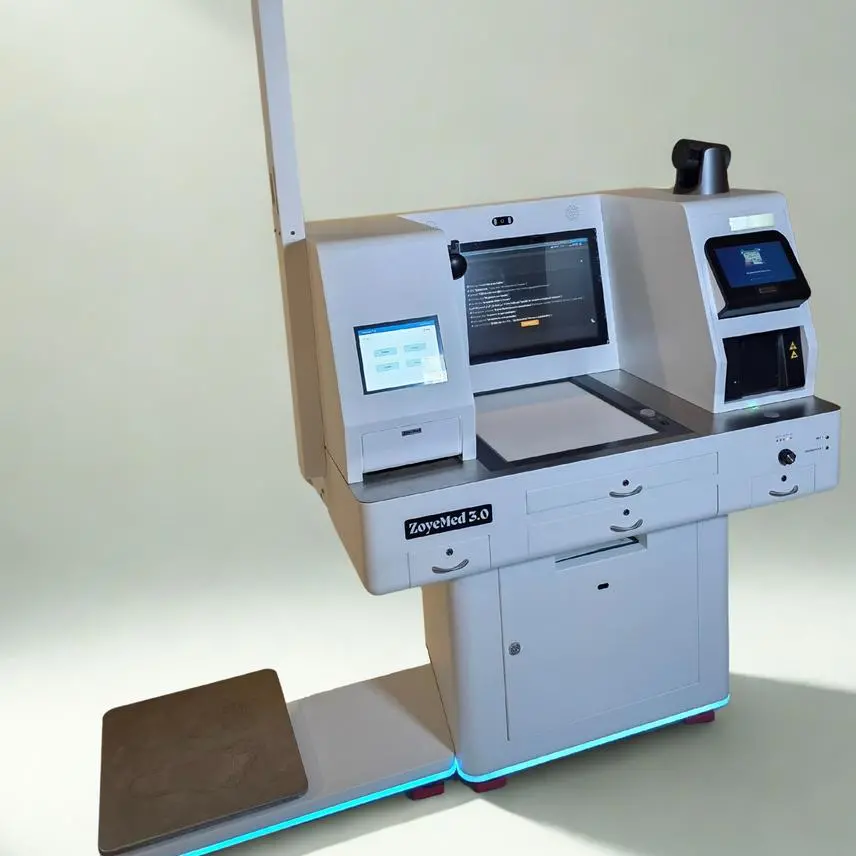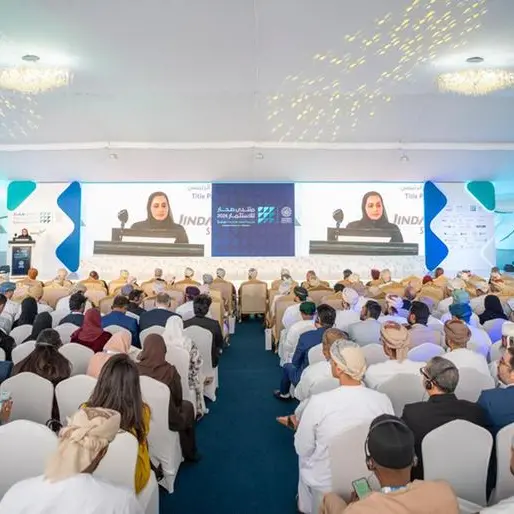PHOTO
- Value of digital transformation to the global economy could reach more than $45 trillion in the decade to 2025.
Dubai, United Arab Emirates: The World Economic Forum estimates that the value of digital transformation stands at almost $13 trillion. Scaling this up across all industries, the value of digital transformation to the global economy could reach more than $45 trillion in the decade to 2025.
These statistics were released in conjunction with Annual Investment Meeting (AIM),which highlighted the impact of digital globalization and how to attract and develop skilled talents across the world. AIM is the world’s biggest platform for foreign direct investment (FDI) and will run until 10th of April in Dubai under the theme ‘Mapping the Future of FDI: Enriching World Economies through Digital Globalization’.
Highlighting the importance of digital technology, His Excellency Muhammadu Buhari, President of The Federal Republic of Nigeria, said, “Digital globalisation is here to stay. Today, we have a cyber world that is intangible but real. This borderless world is powerful, and it impacts the lives of billions of people, no matter how remote their physical locations are. In Nigeria, mobile phone penetration exceeds eighty per cent. This means majority of Nigeria’s one hundred and ninety million citizens are fully connected to this new digital world; especially our youth. Sixty five percent or one hundred and seventeen million Nigerians are under the age of 25 years. These bright minds are the drivers of this emerging digital sector. In addition, Nigeria has close to ninety technology hubs and every day, new ones are coming up. I therefore would ask all of us here present, over the coming days, to put our heads together and come up with proposals on how we create a digital world that is accessible, inclusive and safe.”
- H. Evo Morales, President of Bolivia, also shared his thoughts on the importance of digitalisation and highlighted how integration of technologies has positioned Bolivia as one of the new investment destinations. He said, “Bolivia has witnessed an increase in creation of companies and the profits in the private sector have quadrupled.The geographical location of Bolivia is most suitable and favorable for trade relations with countries all around the world. Biofuels is another sector that has tremendous potential in the country along with exports of the organic produce of the country.”
Underscoring the importance of digital,Rustam Minnikhanov, President, Republic of Tatarstan, Russian Republichighlighted the importance of educating and trainingprofessionals to adapt technology to boost the global economy.
Dr. MukhisaKituyi, Secretary General, United Nations Conference on Trade and Development (UNCTAD), Switzerland said, “Global economy has risen from 6 trillion dollars to 9 trillion dollars. There is a phenomenal growth in digital purchases. Blockchain and other technologiesare transcending the boundaries of traditional economies, helping build faster ways to strengthen the traditional methods.”
According to Ayman Amin Sejiny, Chief Executive Officer, Islamic Corporation for the Development of thePrivate Sector (ICD), Saudi Arabia, technologies as big data will help convert the data into best use and create several jobs. In his opinion, partnerships between technology and government bodies will strengthen a sustainable future.
The role that digitalisation plays in making the production process more efficient is evident from the fact that it is being used across traditional sectors like oil and gas too. Adewale Tinubu, Group Chief Executive Oando PLC, Nigeria stated that the oil industry is the biggest beneficiary of technology and if used accurately, it will not only simplify processes, but also produce better results.
Digitalisation is regarded to increase the ratio of high-skilled to low-skilled workers, with emphasis on retraining and the reassignment of workers to new tasks supported by digital technologies. Taking this into consideration, Dr, James Mworia Group Chief Executive Director of Central Investments in Kenya said that his company creates opportunities in existing businesses by integrating digital technologies to increase productivity and revenue.
Similarly, Al Rajhi Banking & Investment Corporation, Saudi Arabia also makes use of digital technologies. According to Steve Bertamini, CEO Al Rajhi Banking & Investment Corporation, 60 percent of all its transactions are digitally and steadily increasing, with the bank running 250 chatbots.
With companies and sectors adopting technologies, United National Economic Commission for Africa, Ethiopia stated that the country is also incorporating digital technologies across all areas, including ports to make them efficient and easier in creating a good business environment.
While digitalisation may be viewed as a key driver for main economic aggregates,Dr. Adnan Chilwan, Group CEO, Dubai Islamic Bank, United Arab Emirates stated that the important economic sectors, particularly banks should use existing ecosystems rather than have their own. This will not only generate a seamless experience, but also make it sustainable.
Digital technologies and renewable energy are major initiatives to draw Foreign Direct Investment (FDIs). The UAE has a potential to increase 3.7 to 10.8 trillion mobile networks by 2025.
Annual Investment Meeting also highlighted the importance of ‘Blockchain, Big Data and Artificial Intelligence’, focusing on the main opportunities and challenges for creating an inclusive digital economy. Similarly, it also focused on ‘Countering the Global Rise of Protectionism Policies for Sustainable Growth’ and highlighted the benefits from international trade and the impact of protectionism on trade and foreign direct investment. Key leaders also discussed the importance of ‘Attracting Investments in the 4.0 World’, which focused on changes in technology disrupting all sectors of the global market. Leading to the creation of new jobs, new industries and new opportunities, which would require the government to rework their current policies, the first two days of AIM discovered technological revolution and its impact on FDIs.
-Ends-
© Press Release 2019Disclaimer: The contents of this press release was provided from an external third party provider. This website is not responsible for, and does not control, such external content. This content is provided on an “as is” and “as available” basis and has not been edited in any way. Neither this website nor our affiliates guarantee the accuracy of or endorse the views or opinions expressed in this press release.
The press release is provided for informational purposes only. The content does not provide tax, legal or investment advice or opinion regarding the suitability, value or profitability of any particular security, portfolio or investment strategy. Neither this website nor our affiliates shall be liable for any errors or inaccuracies in the content, or for any actions taken by you in reliance thereon. You expressly agree that your use of the information within this article is at your sole risk.
To the fullest extent permitted by applicable law, this website, its parent company, its subsidiaries, its affiliates and the respective shareholders, directors, officers, employees, agents, advertisers, content providers and licensors will not be liable (jointly or severally) to you for any direct, indirect, consequential, special, incidental, punitive or exemplary damages, including without limitation, lost profits, lost savings and lost revenues, whether in negligence, tort, contract or any other theory of liability, even if the parties have been advised of the possibility or could have foreseen any such damages.




















